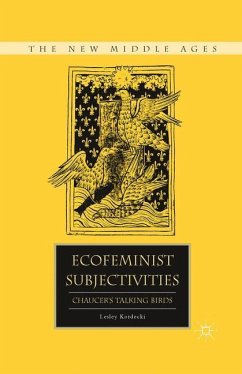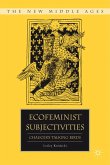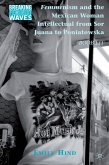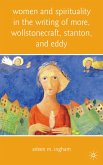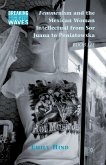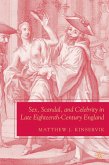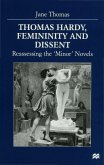This book analyzes the interaction between gender and species in Chaucer's poetry and strives to understand his adaptation of medieval discourse through an ecofeminist lens. Works that either speak of animals, or those with animals speaking, give new insights into the medieval textual handling of the 'others' of society.
"For decades now Kordecki has been teaching us that Chaucer is also usefully understood as a, so to speak, poet-avian, a writer instructed by, and who, in turn, shares with his readers, the beauty and the habits and the lore of those creatures, from one perspective, freest of all Nature s creatures, birds, who soar above us, nest among us (and, yes, also besplatter our windshields), representing to us the very air of liberty as they also confront us, as they did Chaucer, with voices we hardly can merely ventriloquize - it is good now to have all of Kordecki's studies in one volume, that we can the better see how Chaucer developed his own voice in dialogue with Nature, the Mother of birds and humans alike." - R. Allen Shoaf, editor emeritus, EXEMPLARIA
"Ecofeminist Subjectivities addresses a need for work that combines close reading with comprehensive knowledge of new theoretical work in ecocriticism, feminism, and critical animal studies. The analysis is both innovative andpowerfully synthetic. The thesis is closely argued, timely, and ethically significant. The book shifts our perspective on major Chaucerian texts and opens the way for further studies that explore medieval representations of species." - Carolynn Van Dyke, Francis A. March Professor of English, Lafayette College.
"Ecofeminist Subjectivities addresses a need for work that combines close reading with comprehensive knowledge of new theoretical work in ecocriticism, feminism, and critical animal studies. The analysis is both innovative andpowerfully synthetic. The thesis is closely argued, timely, and ethically significant. The book shifts our perspective on major Chaucerian texts and opens the way for further studies that explore medieval representations of species." - Carolynn Van Dyke, Francis A. March Professor of English, Lafayette College.

